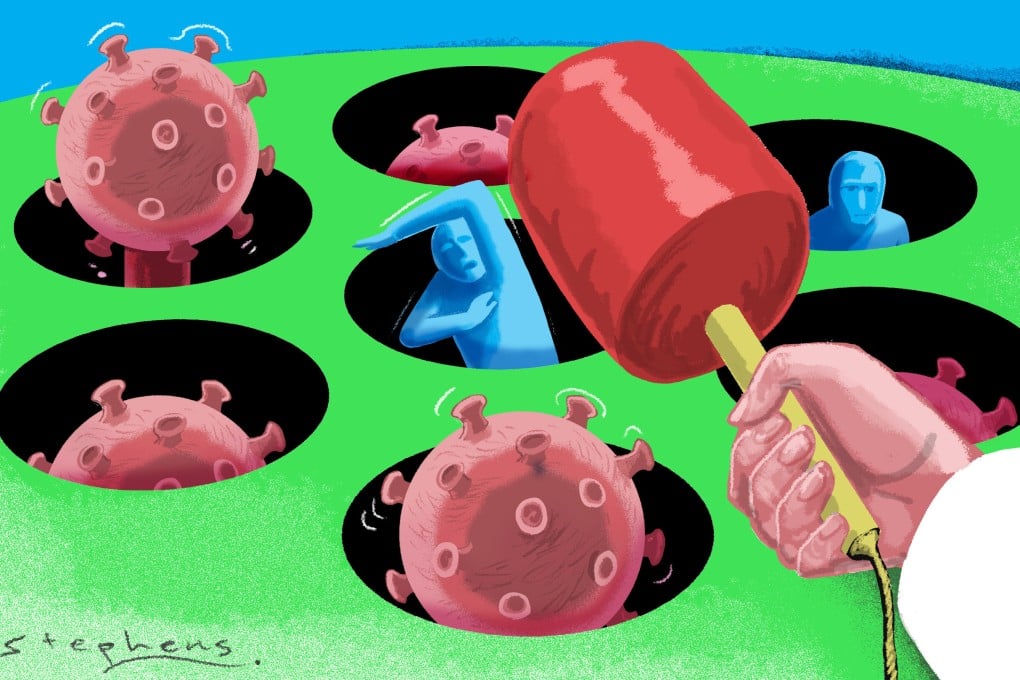Opinion | Hong Kong’s Covid-19 measures must be driven by scientific fact, not fear
- The middle road between a strict zero-Covid-19 policy and a dangerous ‘let it rip’ scenario is grounded in science and promotes quality of life
- It requires us to focus on sensible long-term measures such as wearing masks, getting vaccinated, gathering only outdoors, and improving indoor ventilation

More than two years into the Covid-19 pandemic, and with yet more measures being introduced by the Hong Kong government, it seems like we’re in a perpetual state of “déjà vu all over again” (as US baseballer Yogi Berra put it), and no closer to “normal”. It’s incredibly tiresome, yet as a Los Angeles Times article noted this month, while many might say they are “done with Covid”, Covid’s not done with us.
Perhaps, then, it is worth looking at how science suggests Covid-19 will pan out and ways we might respond. First, as I’ve written before, Covid-19 spreads efficiently well before symptoms even develop, so there is no real pressure for it to evolve towards being less dangerous, or simply “disappear”, as former US president Donald Trump predicted.
Second, Covid-19 is airborne, which means that, much as unprotected sex carries a risk of contracting HIV, unprotected breathing might result in Covid-19.
As in other places, Hong Kong’s policy includes some measures with a scientific basis, and others that look more questionable. The 21-day quarantine for new arrivals, for instance, was longer than scientifically necessary – and a recent outbreak was traced to a woman who caught Covid-19 late in her quarantine stay.
Plus, outdoor facilities like barbecue pits and campsites remain closed, though evidence reveals little Covid-19 transmission outdoors, while indoor banquets for up to 240 people have been permitted.
